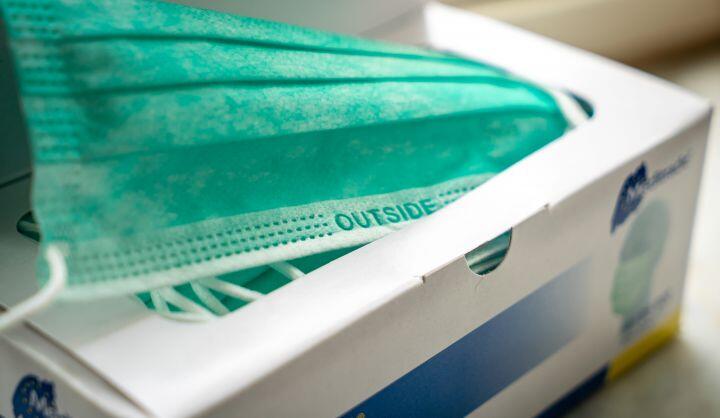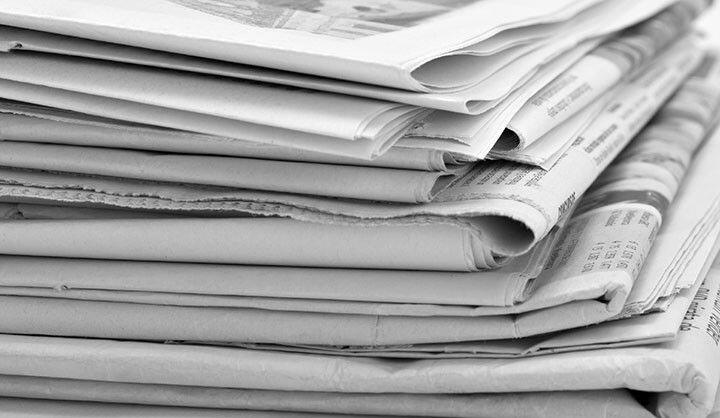- May 5, 2020
- COVID-19
The spread of COVID-19 since December 2019 has disrupted several industries and ground others to a halt, leaving countless people who work in the service industry out of jobs, public transportation to deal with a massive drop in ridership, and small businesses to entirely change their operations, if it is even possible to do so. Meanwhile, other sectors have been pushed to their breaking point—hospitals are providing care for unprecedented numbers of patients with COVID-19 while their doctors and nurses run low on personal protective equipment (PPE), putting their lives at risk; online retail has seen a massive spike in orders; and grocery stores are mandated to make necessary social distancing precautions for customers stocking up on food.
While some services are now deemed virtually irrelevant during the pandemic, essential workers and the healthcare industry are running dangerously low on valuable resources that could keep them safe and operational. As the world waits for the creation of a vaccine for COVID-19 which experts say could take up to 18 months, it is left to the essential workers and healthcare employees to keep the country fed and care for the massive part of the population that has become critically ill from the virus. At the same time, restaurants, small businesses, and others teeter on the brink of permanently closing, while state governors are made to compete with each other in bidding for federal resources such as ventilators and PPE to manage the onslaught of COVID-19 cases.
During the pandemic, private-public partnerships—or P3s—for procuring necessary medical and protective equipment and innovative answers for mitigating the effects of COVID-19 between government agencies and the private sector have proven to be crucial in helping to fill some supply chain gaps and solve other problems that have arisen due to the quarantine. Read some of the more recent examples:
Personal Protective Equipment
Three government agencies, the National Institute of Health (NIH), Veterans Affairs Department (VA), and the Food and Drug Administration (FDA), have recently formalized an effort in which they will seek designs, produce, and test 3D-printed PPE and other medical supplies in urgent need in the fight to mitigate COVID-19 by signing a Memorandum of Understanding. Through this, the agencies are commissioning a P3 with America Makes, a nonprofit accelerator that will act as a “matchmaker” between health care facilities in need of agency-approved PPE and the manufacturers in the industry with the ability to produce them.
The global health emergency has placed an immense burden on the country’s medical supply chain—a burden that 3D printing can alleviate as the process can quickly expedite the time between the first concept design of a product and the production of the product. The FDA, NIH, and VA possess the necessary resources to speedily test and distribute the 3D-printed designs of medical face masks, face shields and other necessary supplies that medical personnel urgently need, which helps hasten the delivery.
The 3D design proposal through printing process is outlined in the memorandum. First, the NIH’s 3D Print Exchange, an existing tool, will find and share designs that are clinically admissible and readily suitable for 3D printers. Those with 3D designs of medical materials used to help with COVID-19 can submit their designs to the NIH online. Next, the VA is able to evaluate and test the submitted designs. America Makes serves as the streamlined connection between the individuals or organizations with substantial 3D-printing capabilities and health care facilities with crucial needs for supplies and PPE.
COVID-19 Research
The Department of Energy’s Argonne National Laboratory has partnered with a conglomerate of private research centers, labs, and universities to join forces and pool the use of their top supercomputing resources to learn more about COVID-19 and the SARS-CoV-2 virus that causes it as well as aid in the response efforts. The participating members of this effort include Brookhaven National Labs, the J. Craig Venter Institute and several universities such as the Universities of Texas, Virginia, Illinois, Chicago, and California San Diego amongst others. Additional members the National Center for Atmospheric Research’s Wyoming Supercomputing Center, chipmaker AMD and graphics processing units maker NVIDIA were added almost a month later to the now dubbed COVID-19 High Performance Computing Consortium.
In order to take part in the new consortium, researchers from anywhere are able to submit relevant coronavirus research proposals to an online portal created and managed by the supercomputing consortium. Then, those submissions are reviewed and successful submissions are then matched with the computer resources and the consortium member whose area of focus and materials are able to best support the study. The systems that consortium members are making available to this effort are so advanced that they “can process massive amounts of calculations related to bioinformatics, epidemiology, molecular modeling and healthcare system response—helping scientists develop answers to complex scientific questions about COVID-19 in hours or days, rather than weeks or months.”
Meals for Homeless Shelters
In Cambridge, Massachusetts, local officials have come up with an innovative public-private partnership to mutually benefit two vulnerable and struggling populations during the global health crisis—restaurants and the homeless. In this city-led initiative, the City of Cambridge committed to paying local restaurants to provide meals for lunch and dinner at homeless shelters for as long as social distancing requirements are in place. Now, restaurants that can’t serve the public are preparing meals for local homeless shelters.
As volunteers are not considered “essential workers,” they are unable to volunteer at homeless shelters until social distancing restrictions are lifted—leaving homeless shelters to operate with the small, overextended staff they have left. In the first week of the program at the end of March, restaurants were able to distribute 1,800 meals to eight homeless shelters and meal programs. Eight centrally located restaurants, chosen to make delivery easy, participated in the initial run. The Harvard Square Business Association (HSBA) subsequently began working to distribute business among the approximately 30 restaurants and cafes around Harvard Square that are still open for takeout.
Participating restaurants say that this initiative has allowed them to stay in business as fewer people are ordering takeout and delivery as the quarantine continues. Inspired by the initiative in Cambridge, a similar program sprouted in Oakland County, Michigan, and in other cities like Detroit and Portland, chefs are taking it upon themselves to coordinate with homeless shelters as opposed to waiting for local government intermediaries.
___
As P3s are proving to lead to quick and innovative solutions to the biggest public health crisis our generation has faced, more and more agencies are seeking partners to address issues brought on by COVID-19’s effect on daily life. The Department of Defense is searching outside of the military for original technologies in several mission areas including: combating the COVID-19 spread; welfare of citizens; readiness; logistics; and industrial base impacts. The Department of Homeland Security announced earlier this month that the agency will use a newly established pilot program to procure innovative tools to address a range of needs in the response to COVID-19, including PPE shortage and scaling operations logistics. To further aid in these endeavors, a new initiative called COVID Vendor Check from Procurated allows for governments, nonprofits and schools to provide reviews and report on suppliers during the public health crisis to tamp down on price gouging, scams, or poor performance.
However, it isn’t only P3s that are contributing to the fight against COVID-19—the global health crisis has brought out a spirit of volunteerism from industries and individuals that are able to donate or produce much-needed supplies. Biotech companies, whose employees are largely working from home and not in laboratories, are donating PPE to medical facilities. Distilleries, now unable to host tours or tasting rooms, are batch manufacturing hand sanitizer for local hospitals and organizations that need it. Makers and fashion designers are now wielding their sewing machines and skills to make cloth masks and other PPE. In Boston, the Kraft family, owners of the New England Patriots, chartered their airplane to China to deliver one million N95 respirator masks to healthcare workers in Massachusetts. And Harvard University, which owns the Harvard Square Hotels, is offering the hotel to medical workers, first responders, and front-line workers as a place to stay near local healthcare facilities during the pandemic.
Volunteerism aside, it’s these private-public partnerships that can help the federal and local governments scale the operations they need to procure urgently needed medical supplies, PPE, and other tools necessary to solve the industry issues and meet the supply chain demand that our generation’s global health emergency has wrought.




